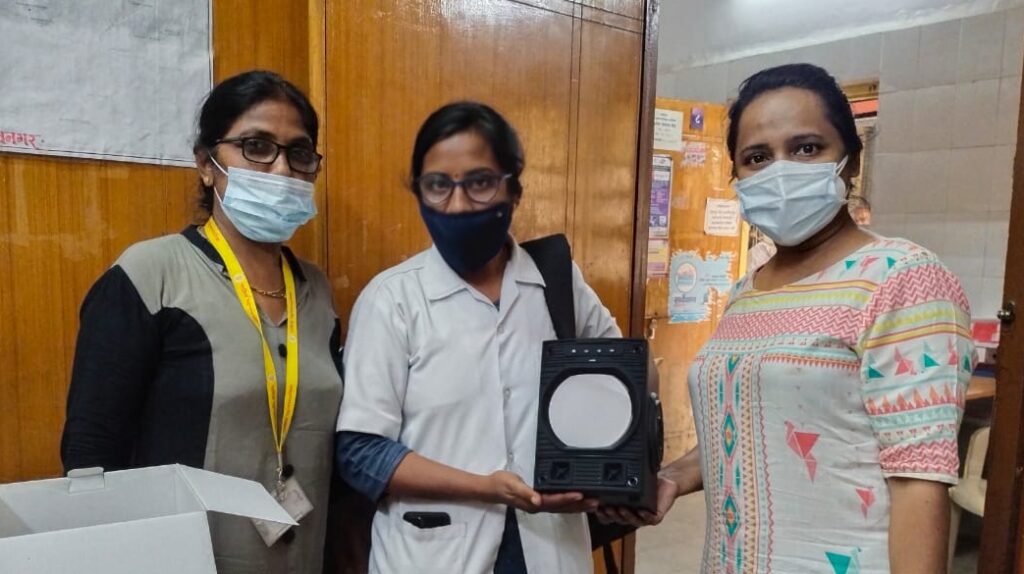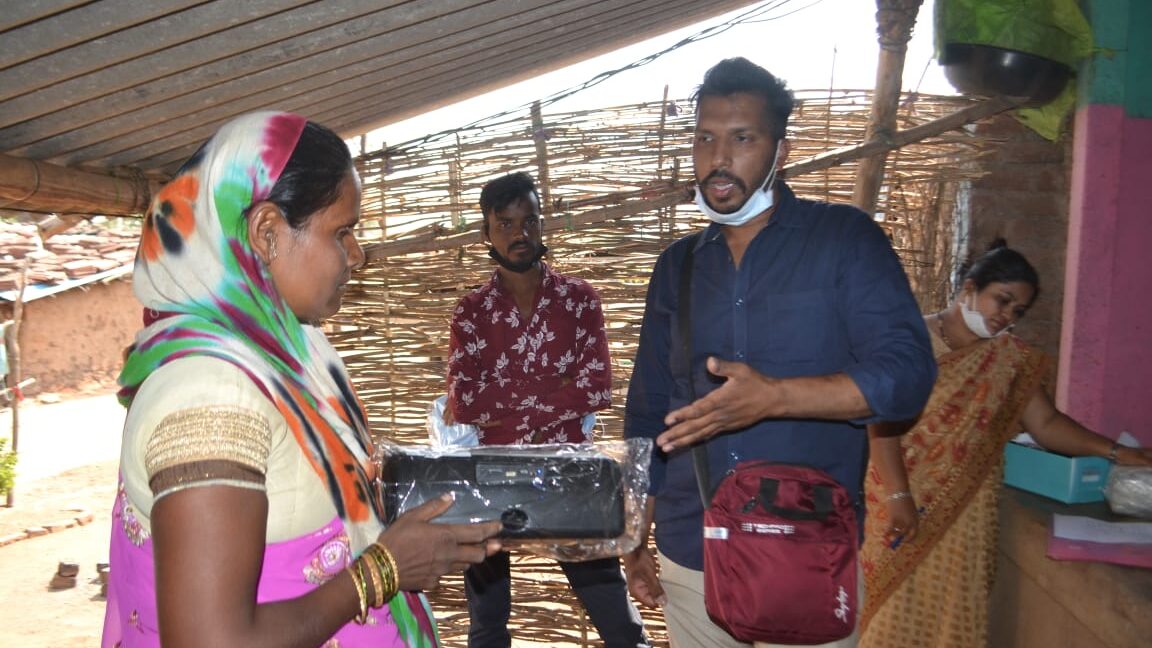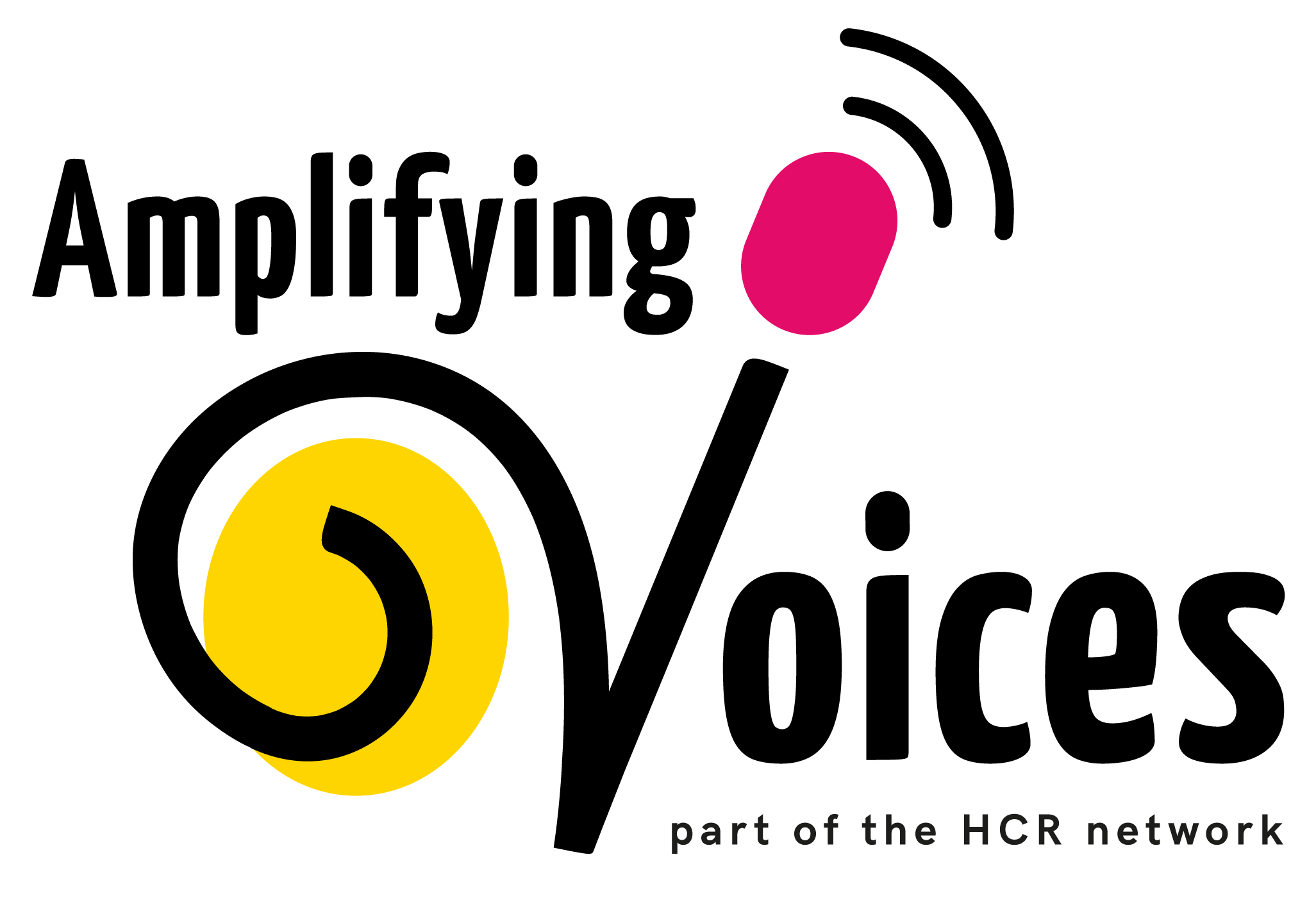
Covid’s most important public health message
“It’s the most important public health message that is now becoming famous all over Nashik,” Shilpa told me, as they placed more speakerboxes in clinics across the city at the invitation of the Municipal Corporation. Which message is that, I asked. “That we love our neighbour as ourselves,” she said. “On top of all the other interviews and dramas that we are making, people are taking THIS message to heart more than any other, because they know it’s what will get us through this crisis.”
As India reels under the devastation of a second wave of the Corona virus, we are delighted to be supporting our partners, SEVA in Nashik, as they reach out to help the most vulnerable people in their city, which has been hit very hard. “We are trying to feed the most vulnerable people on the streets and in the slums as they are unable to get help anywhere else,” Shilpa said.
In addition to providing food, facemasks and hand sanitiser, the team have been making audio programmes for speakerboxes which are rapidly being deployed across the city in all the slums, in hospitals and health clinics. Ambulances are also carrying the programmes and even the municipal garbage trucks are broadcasting the message on their loudspeakers as they drive around the city.
And while the team provides practical help and reliable information to the people of Nashik, they have also continued their vital work reaching out to the indigenous tribal (Adivasi) villages. While the villages were somewhat shielded from the first wave of spread of Corona Virus due to their remoteness, the second wave has begun to spread like wildfire in these close-knit communities.

Sam from the Seva team explains how the speakerbox works to an Adivasi family. The speakerbox provides vital information for the family
“Indigenous communities are very vulnerable,” says Shilpa, “As they live in very close proximity to each other, where sanitation and hygiene is often quite poor.” Unfortunately Covid vaccine hesitancy is also pervasive among Adivasi communities, as many people believe the vaccine will do them harm and will even give them the infection. Other wildly misleading claims include that the vaccines contain pork products or a micro-chip that will control a person’s mind.
It is for this reason that the team has greatly ramped up audio production for the speakerboxes in the Adivasi villages, to try and dispel some of these myths and provide accurate information. But providing messages for the community will have little effect unless the community is central to and involved in the communications process. That is why Shilpa and her team spend considerable time listening to people’s concerns and fears about Covid and the vaccine and what barriers prevent them from wanting to be immunised.
This pandemic has been the first in history in which technology and social media have been used on a massive scale to keep people safe, informed, productive and connected. However, the very technology people have been relying on to keep connected and informed has enabled and amplified an ‘infodemic’ that has caused confusion, rumours, misinformation and has even endangered lives. For that reason alongside the practical help of food and hygiene support, Seva’s media work is vital. It enables people to make informed choices, take decisions that keep them healthy and know what to do when things go wrong.
